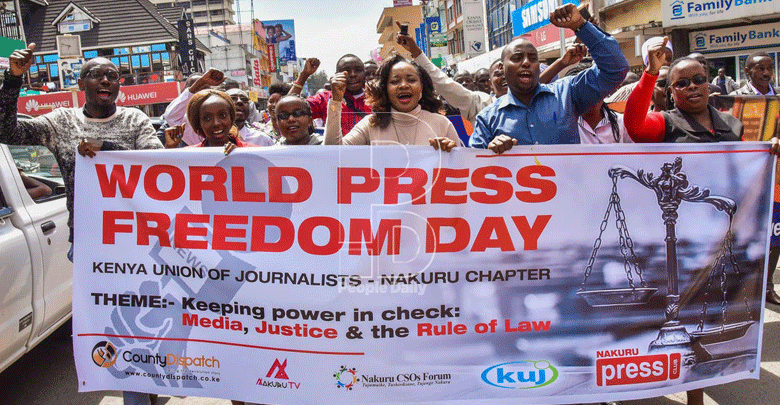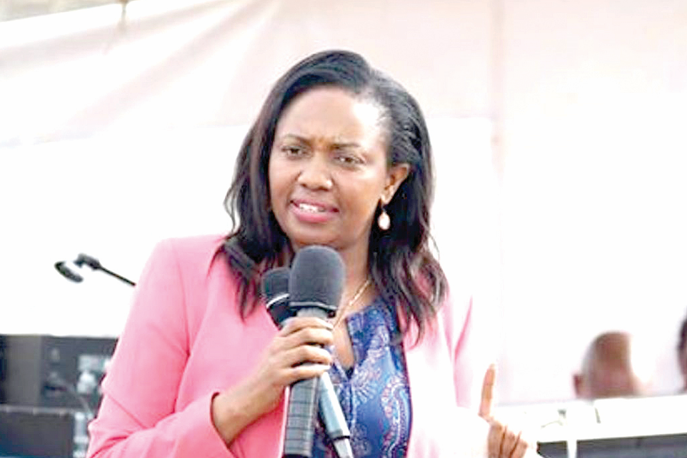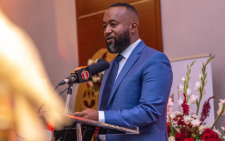Greater vigilance needed on press freedoms

The incoming United States president’s war against the media is on. This is not new; rather, president-elect Donald J. Trump has always had something against the press, which he pejoratively describes as fake and views as lined up against him.
Save for the Fox channel owned by the media mogul Rupert Murdoch, which generally gives the Trump camp favourable coverage, Trump’s team has treated the rest of the media as the enemy.
The US has generally given the media its character, although the history of the press goes back far before the arrival of the pilgrims on American shores. In our part of the world, there is a greater admiration of the British media.
Although trained in the sciences in the US, the first African editor of post-independence Kenyan media seemed to have been less impressed with the American press and always sought to fashion his media practice after the British. Even today, the debate on the template for the seemingly wobbly Kenya Broadcasting Corporation is over the lessons that they could learn from the BBC rather than National Public Radio.
American jurisprudence has contributed to freedom of speech and freedom of the press. In the 1960s case of the New York Times v Sullivan, the US Supreme Court, in what is considered a landmark ruling that has stood the test of time, set the threshold for what could pass for libel at “actual malice”.
But in a postmodern world characterised by chaos rather than fidelity to tradition and the conventional subjecting of history to the zeitgeist, old assumptions must be examined again.
Early this week, the US network broadcaster ABC contributed $15 million to the library of Trump in exchange for the incoming president dropping a suit he had filed against the network’s anchor for imprecise word choice while covering a ruling earlier in the year and during the campaigns for president.
Now, Trump has sued a newspaper for reporting poll results unfavourable to him during the last campaigns. What starts in America, particularly concerning freedoms — whether of speech, association, press, or conscience — and the extent to which it limits them, would find greater resonance elsewhere in the world.
Across the philosophical divide in Russia, at war with Ukraine over territory for the last three years, another war on the media is going on. A former president of the country, Dmitry Medvedev, said that the editors of The Times of London, that bastion of traditional British journalism, were legitimate military targets for having reported the assassination of a Russian military leader.
The Times had editorialised that the killing by suspected Ukrainian agents of Lt Gen Igor Kirillov and his aide in Moscow was a “legitimate act of defence”. Russia was irked by the editorial, and the former president said that “anything goes in London”.
That is a dark statement as Russia previously targeted Russian dissidents living in exile in London. The British government was quick to respond in defence of journalism, with British Foreign Secretary David Lammy writing in an op-ed that British newspapers represent the best of British values: “freedom, democracy and independent thinking”.
Media scholars and industry players must be concerned about the increasing threat to the press from the centres of power and what that means for fragile states at the periphery of democratic practice, such as those on the African continent.
Closer to home, in the next three years, elections will be held in the core East African states of Tanzania, Uganda, and Kenya, which probably have the most explicit pretences to democracy in the community. With examples emerging from centres of freedom practice, it is chilling to think what these could mean for copycat client states. Journalism requires greater vigilance every day.
— The writer is the Dean of Daystar University’s School of Communication













